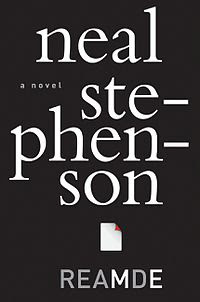The Last Letter is a film made by Frederick Wiseman in 2002. It was his first non-fiction film after four decades of making celebrated documentaries examining American institutions, and is a record of a sixty-minute performance by French actress Catherine Samie which Wiseman had previously directed at the Comédie-Française in Paris. It is one of the most compelling representations on film of the experience of the Holocaust that I have ever seen.
Stripped to bare essentials, the film presents a bravura monologue taken from from Vasily Grossman’s novel Life And Fate. Featuring only the performer on a bare stage, there are no props, and there is no score. The monologue represents the last letter to her son from a Russian-Jewish doctor who has been forcibly removed by the Nazis from her home to a Ukrainian ghetto.
A bit of background (though none of this is really necessary, since the film wields its own tremendous emotional force without needing any explanatory gloss).
As special correspondent for the Red Army newspaper, Vasily Grossman witnessed the siege of Stalingrad, and marched with the Red Army as it advanced through Ukraine, before finally entering Berlin. The westward advance brought him to the Nazi camps in Poland and his 1944 report ‘The Hell Called Treblinka’ was the first article about a death camp ever published.
As the Red Army advanced through Ukraine, Grossman came to realise that the Nazis had been systematically exterminating Jews, and that some Ukrainians had collaborated with the Germans in doing so. When he stopped at Berdichev, the town where he had been born, he learned about the murder of between twenty and thirty thousand Jews, among them his mother. He never recovered from her death, and felt guilty for not bringing her to Moscow in time to save her.
 Vasily Grossman with his mother
Vasily Grossman with his mother
Life and Fate contains two passages which surely rank among the finest in Holocaust literature. In one, a young doctor, Sofya Osipovna Levinton befriends a young boy known only as David as they are transported to the gas chambers of Auschwitz. It is the second of these passages, in which Grossman clearly drew upon the fate of his own mother, which Wiseman adapted for The Last Letter: Anna Semyonova, the mother of the novel’s central character, the scientist Viktor Shtrum, is rounded up in the Ukrainian town of Berdichev with thousands of other Jews when the Germans invade, and writes what she knows will be her last letter to her son. This letter comprises an entire fourteen-page chapter in Grossman’s novel.
Certain of her fate, Anna – who is a doctor – recounts the events that led to the ghetto: the entry of the Germans into the town (‘that morning I was reminded of what I’d forgotten during the years of the Soviet regime – that I was a Jew’), the reactions of her once-friendly neighbours (‘the caretaker’s wife was standing beneath my window and saying to the woman next door: ‘Well, that’s the end of the Jews. Thank God for that!”), the announcement that all Jews were required to leave their homes and move to the Old Town, taking with them no more than 15 kilograms of belongings.
There is one man – a patient of hers – who surprises Anna with his kindness:
When I’d got everything ready and was wondering how I’d be able to carry my basket to the Old Town, a patient of mine suddenly appeared, a gloomy and – so I had always thought – rather callous man called Shchukin. He picked up my belongings, gave me 300 roubles and said he’d come once a week to the fence and give me some bread. He works at the printing-house – they didn’t want him at the front because of his eye trouble. He was a patient of mine before the war. If I’d been asked to list all the people I knew with pure, sensitive souls, I might have given dozens of names – but certainly not his. Do you know, Vityenka, after he came, I began to feel once more that I was a human being – it wasn’t only the yard-dog that still treated me as though I were.
New decrees are issued: Jews are to be forbidden to walk on the pavements; they are required to wear a yellow patch, a Star of David, on the Chest; they no longer have the right to use public transport, baths, parks, or cinemas; they are forbidden to buy butter, eggs, milk, berries, white bread, meat, or any vegetable other than potatoes. If a Jew is discovered in a Russian home, the owner will be shot – just as if he were housing a partisan.
Now her fate is in the hands of the occupying Nazis, and word is circulating that the Germans are killing all the Jews in the district around, recruiting a few dozen men to dig trenches in the nearby forest,before all the Jews in a village are marched to them and shot.’ But what I really want to talk to you about,’ writes Anna, ‘is something quite different.’
I never used to feel I was a Jew: as a child my circle of friends were all Russian; may favourite poets were Pushkin and Nekrasov; the one play that reduced me to tears … was Stanislavsky’s production of Uncle Vanya.
But now, during these terrible days, my heart has become filled with a maternal tenderness towards the Jewish people. I have never known this love before. It reminds me of my love for you, my dearest son.
I visit the sick in their houses. Dozens of people are crowded into minute little rooms – half-blind old men, unweaned babies, pregnant women. I’m used to looking into people’s eyes for symptoms of diseases – glaucoma, cataract. Now I can no longer look at people’s eyes like that; what I see is the reflection of the soul. A good soul, Vityenka! A sad, good-natured soul, defeated by violence, but at the same time triumphant over violence.
Anna knows she will never see Vitya again, and so this letter, which she intends to smuggle out of the ghetto, is her way of setting down a record of events for the future, but also a means by which she can comprehend her life and bear witness to it. She writes:
They say that children are our own future, but how can one say that of these children ? They aren’t going to become musicians, cobblers or tailors. Last night I saw very clearly how this whole noisy world of bearded, anxious fathers and querulous grandmothers who bake honey-cakes – this whole world of marriage customs, proverbial sayings and Sabbaths will disappear for ever under the earth. After the war life will begin to stir once again, but we won’t be here, we will have vanished – just as the Aztecs once vanished.
 Catherine Samie in The Last Letter
Catherine Samie in The Last Letter
In Wiseman’s film, the action takes place entirely on a dark and empty stage, lit by a single source of light that sometimes illuminates Catherine Samie’s face in close-up, while in other moments creating black-and-white chiaroscuro images from the actress’s long shadows cast across the stage.
The Last Letter contains everything that Grossman put in his text: the portrait of a woman who refuses to succumb to self-pity or despair, writing to her son a personal testament which she hopes will survive in the world after the Nazis have supposedly obliterated her. It is her character, as much as her fate, which lends a tender beauty to her final words:
Vityenka, I’m finishing this letter and taking it to the ghetto fence to hand to my friend. It’s not easy to break off. It’s my last conversation with you. Once I send it off, I will have left you for ever and you will never know of my last hours. This is our final parting. What can I say to you in farewell, in eternal farewell? These last days, as during my whole life, you have been my joy. I’ve remembered you at night, the clothes you wore as a boy, your first books. … I’ve closed my eyes and imagined that you were shielding me, my dearest, from the horror that is approaching. And then I’ve remembered what is happening here and felt glad that you were apart from me – and that this terrible fate will pass you by!
I can hear women weeping on the street, and policemen swearing; as I look at these pages, they seem to protect me from a terrible world that is filled with suffering. How can I finish this letter? Where can I find the strength, my son? Are there words capable of expressing my love for you? I kiss you, your eyes, your forehead, your hair. Remember that your mother’s love is always with you, in
grief and in happiness, no one has the strength to destroy it. Vityenka … This is the last line of your mother’s last letter to you. Live, live, live for ever . . . Mama.
Peter Rainer, in Last Farewell, his review for New York Movies, wrote:
Wiseman had previously directed The Last Letter at the Comédie-Française and at the American Repertory Theatre, and he uses the camera to deepen the chiaroscuro effects he achieved onstage. The close-ups of Samie, with her helmet of thin white hair, are always held for precisely the right number of beats. Wiseman understands the phosphorescent power of her face and how, in intervals, we must turn away from it or be blinded. He has always had an unerringly musical sense of how to pace a sequence. The periodic shots of Anna fragmented in shadow against bare walls are like gentle punctuation. They are also metaphors: This woman, with her formidable, almost sculptural presence, is fading before our eyes. Anna is aware of her evanescence.
Life and Fate, confiscated by the KGB in 1959, was published sixteen years after Grossman’s death. The Last Letter is a testament both to Grossman’s powers as a novelist – and to Frederick Wiseman’s skill as a filmmaker in this, his only feature film.
Read more-
Life and Fate: ‘If what is human in human beings has not been destroyed even now, then evil will never conquer’ (this blog)





